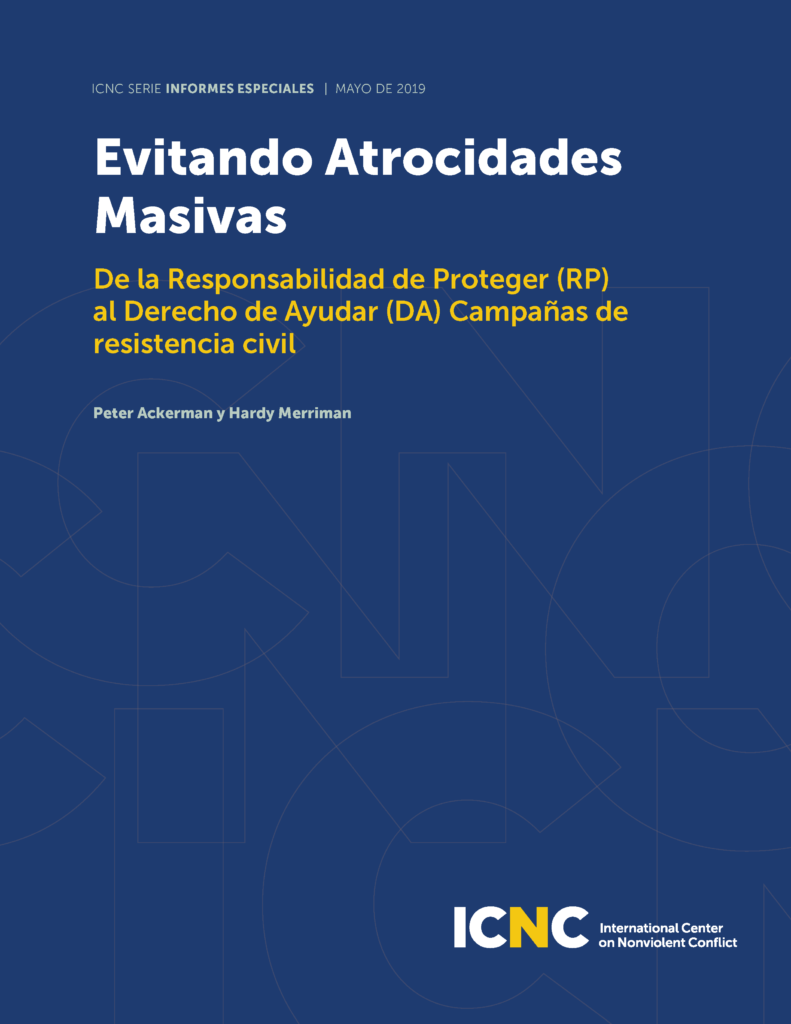with authors Chris Allan, Scott DuPree, and Mahmoud Soliman
June 16, 2021
Webinar Content
Introduction of Mexico Case Study Speakers: 0:00–6:19
Mexico Presentation: 6:20–30:56
Introduction of Palestine Case Study Speaker: 30:57–32:26
Palestine Presentation: 32:27–57:12
Questions and Answers: 57:13—1:32:36
Webinar Description
ICNC is pleased to host the authors of two forthcoming case studies on materials resources: Chris Allan and Scott DuPree, the authors of Nonviolent Movements and Material Resources in Northwest Mexico, and Mahmoud Soliman, the author of The Mobilization of Material Resources and Palestinian Nonviolent Resistance in the Occupied Territory of Area C.
Presentation on Nonviolent Campaigns in Northwest Mexico
Communities in Mexico are faced with challenges to their rights to natural resources: dams displace them, mines and industry poison their water and soil, criminal gangs and corrupt officials take over their territory. On paper, laws protect communities and Indigenous peoples, but in practice the state rarely comes to their aid. As a result, building movements that support the struggles of communities and groups fighting for their social, economic, cultural, and environmental rights has been a key strategy in civil resistance.
The movements seem to operate with few resources, and nearly no money. The little external funding for civil society that is available rarely reaches the grassroots groups that are the backbone of these movements. Yet they thrive and often succeed. This webinar will highlight strategies that are being used effectively by movements to mobilize the resources they need to influence both the public and policymakers. Based on the experience of three campaigns in Northwest Mexico over two decades, the research finds that material resources mobilized internally are a key “social bank” that enables mobilization that movements can sustain over time. We will discuss the strategic choices movements make to mobilize resources and how they direct them as situations change.
Presentation on Nonviolent Campaigns in Palestine Area C
Drawing on detailed interviews with activists, as well as the author’s observations and first-hand experience of more than 15 years as an activist involved in organizing campaigns, this study identifies the tactics used by Palestinian grassroots activists to generate, deploy, and manage material and non-material resources. It also identifies the organizational skills that these groups used to acquire and manage different kinds of material resources in support of various nonviolent campaigns. The study also looks at the types of material and non-material resources that have been harnessed by domestic actors and acquired from external sources for use in nonviolent campaigns.
The monograph presents an in-depth empirical study of three nonviolent resistance campaigns in doubly marginalized communities located in Area C in the occupied Palestine territories under full Israeli occupation. It finds that the residents of the communities were the key domestic actors for the campaigns and provided them with the different kinds of material and non-material resources which sustained them for more than 10 years. The monograph also finds that community-generated material resources were the most valuable to the campaigns and had the greatest impact. The rich non-material resources within the communities helped to generate other kinds of material resources. External actors played supportive roles, but their importance remained secondary to the roles played by grassroots actors in the campaigns. This study showed that external solidarity groups such as international solidarity movements and others played the largest supporting role among external actors.
About the Presenters
 A. Scott DuPree (PhD, Civil Society Transitions) has worked for 30 years in helping build and strengthen social and environmental initiatives in Southern Africa, Brazil, Mexico, Southeast Asia and the United States. Scott holds a PhD in international affairs focused on the dynamic role of civil society. He has assisted international organizations and philanthropic foundations to advance civic approaches to development, human rights, the environment and grassroots activism. Scott was regional director for Africa for The Synergos Institute, co-founder and Program Director for Conectas Direitos Humanos, Greengrants Alliance coordinator for Global Greengrants Fund and the principal of Civil Society Transitions through which he has consulted for numerous organizations around the world. Scott is also a professor in the Masters of Development Program “Global Classroom” at Regis University where he teaches participatory planning and grassroots and indigenous activism.
A. Scott DuPree (PhD, Civil Society Transitions) has worked for 30 years in helping build and strengthen social and environmental initiatives in Southern Africa, Brazil, Mexico, Southeast Asia and the United States. Scott holds a PhD in international affairs focused on the dynamic role of civil society. He has assisted international organizations and philanthropic foundations to advance civic approaches to development, human rights, the environment and grassroots activism. Scott was regional director for Africa for The Synergos Institute, co-founder and Program Director for Conectas Direitos Humanos, Greengrants Alliance coordinator for Global Greengrants Fund and the principal of Civil Society Transitions through which he has consulted for numerous organizations around the world. Scott is also a professor in the Masters of Development Program “Global Classroom” at Regis University where he teaches participatory planning and grassroots and indigenous activism.
 Chris Allan, Ajabu Advisors LLC, has experience with public donors, foundations, and local and international NGOs working in social change, including designing, planning, implementing, and evaluating programs around the globe. He has led or participated in evaluations of global networks, international partnerships, and organizations in many countries (including Brazil, Georgia, Ghana, Indonesia, Kyrgyzstan, Mexico, Niger, Peru, Russia, Rwanda, Somalia, Sudan, Tajikistan, Tanzania, and Zimbabwe). In the human rights field, he has organized and funded grassroots groups, national coalitions, and global alliances working on public participation in decision making about a wide range of issues. He has set up and led grantmaking programs in East Africa, Southern Africa, and globally. He holds a Master’s Degree in Social Change and Development from The Johns Hopkins University School of Advanced International Studies, and a Bachelor’s Degree from Wesleyan University in African Studies and Biology.
Chris Allan, Ajabu Advisors LLC, has experience with public donors, foundations, and local and international NGOs working in social change, including designing, planning, implementing, and evaluating programs around the globe. He has led or participated in evaluations of global networks, international partnerships, and organizations in many countries (including Brazil, Georgia, Ghana, Indonesia, Kyrgyzstan, Mexico, Niger, Peru, Russia, Rwanda, Somalia, Sudan, Tajikistan, Tanzania, and Zimbabwe). In the human rights field, he has organized and funded grassroots groups, national coalitions, and global alliances working on public participation in decision making about a wide range of issues. He has set up and led grantmaking programs in East Africa, Southern Africa, and globally. He holds a Master’s Degree in Social Change and Development from The Johns Hopkins University School of Advanced International Studies, and a Bachelor’s Degree from Wesleyan University in African Studies and Biology.
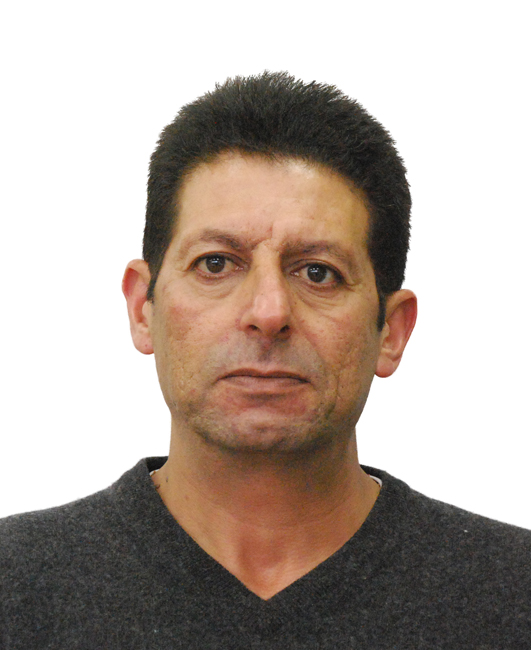 Dr. Mahmoud Soliman is a Palestinian nonviolent activist and academic. He completed his PhD in Peace and Conflict Resolution Studies at Coventry University in April 2019, and the title of his thesis was “Mobilization and Demobilization of Palestinian Society Towards Nonviolent Resistance in the Period from 2004-2014.” He has gained extensive experience in the last 15 years in organizing nonviolent campaigns against the Segregation Wall and the Israeli settlements. He is one of the cofounders of a popular nonviolent resistance network called the Popular Struggle Coordination Committee (PSCC) in which he worked as the capacity-building coordinator supervising the production of training materials for activists in the occupied Palestinian Territories.
Dr. Mahmoud Soliman is a Palestinian nonviolent activist and academic. He completed his PhD in Peace and Conflict Resolution Studies at Coventry University in April 2019, and the title of his thesis was “Mobilization and Demobilization of Palestinian Society Towards Nonviolent Resistance in the Period from 2004-2014.” He has gained extensive experience in the last 15 years in organizing nonviolent campaigns against the Segregation Wall and the Israeli settlements. He is one of the cofounders of a popular nonviolent resistance network called the Popular Struggle Coordination Committee (PSCC) in which he worked as the capacity-building coordinator supervising the production of training materials for activists in the occupied Palestinian Territories.

 Dr. Luke Abbs is a research fellow at the Centre for Religion, Reconciliation and Peace (CRRP) and visiting fellow at the Department of Government, University of Essex. Luke engages in applied data analytics, using statistical methods and supervised machine learning prediction to analyze the dynamics of political conflict and to inform key policy questions about peace and armed conflict. Along with the published monograph discussed in this webinar, his work has been published in the Journal of Peace Research, Journal of Conflict Resolution, the Journal of Global Security Studies and Mobilization.
Dr. Luke Abbs is a research fellow at the Centre for Religion, Reconciliation and Peace (CRRP) and visiting fellow at the Department of Government, University of Essex. Luke engages in applied data analytics, using statistical methods and supervised machine learning prediction to analyze the dynamics of political conflict and to inform key policy questions about peace and armed conflict. Along with the published monograph discussed in this webinar, his work has been published in the Journal of Peace Research, Journal of Conflict Resolution, the Journal of Global Security Studies and Mobilization.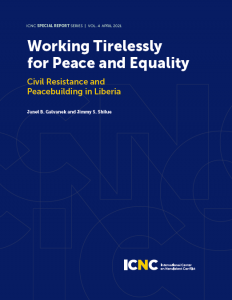
 Janel B. Galvanek is the Head of the Sub-Saharan Africa Unit at the Berghof Foundation in Berlin, Germany. With its programming in Somalia, Ethiopia and Zimbabwe, the Unit supports the capacity-building of insider mediators and infrastructures for peace (I4P) and fosters multi-track dialogue among and between various communities. On a volunteer basis, Janel is the director of Growing Tree Liberia, an NGO based in Germany that supports programs for disadvantaged children in Liberia. She holds a Master’s degree in Peace Research and Security Policy from Hamburg University and an MA from Georgetown University in Washington, DC.
Janel B. Galvanek is the Head of the Sub-Saharan Africa Unit at the Berghof Foundation in Berlin, Germany. With its programming in Somalia, Ethiopia and Zimbabwe, the Unit supports the capacity-building of insider mediators and infrastructures for peace (I4P) and fosters multi-track dialogue among and between various communities. On a volunteer basis, Janel is the director of Growing Tree Liberia, an NGO based in Germany that supports programs for disadvantaged children in Liberia. She holds a Master’s degree in Peace Research and Security Policy from Hamburg University and an MA from Georgetown University in Washington, DC.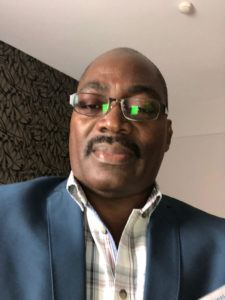 James Suah Shilue is Executive Director for Liberian NGO, Platform for Dialogue and Peace (P4DP) since June 2012. Prior to occupying this position, he served as Liberia’s Programme Coordinator for UN Joint Programme/Interpeace Initiative (2007-2012). He presently serves as chairman for CSOs Cluster on peacebuilding and national reconciliation. He is also an adjunct lecturer at the Department of Sociology & Anthropology at the University of Liberia. His professional areas of interest include social research, post war reconstruction & development, rule of law, peacebuilding and conflict prevention, youth, women peace and security and human security. He has enormous experience working with national and international stakeholders to communicate complex findings into policy relevant action plans. He holds a master’s degree in social and Community Studies (De Montfort University, UK) and an MA in Development Studies (Institute of Social Studies, The Netherlands).
James Suah Shilue is Executive Director for Liberian NGO, Platform for Dialogue and Peace (P4DP) since June 2012. Prior to occupying this position, he served as Liberia’s Programme Coordinator for UN Joint Programme/Interpeace Initiative (2007-2012). He presently serves as chairman for CSOs Cluster on peacebuilding and national reconciliation. He is also an adjunct lecturer at the Department of Sociology & Anthropology at the University of Liberia. His professional areas of interest include social research, post war reconstruction & development, rule of law, peacebuilding and conflict prevention, youth, women peace and security and human security. He has enormous experience working with national and international stakeholders to communicate complex findings into policy relevant action plans. He holds a master’s degree in social and Community Studies (De Montfort University, UK) and an MA in Development Studies (Institute of Social Studies, The Netherlands).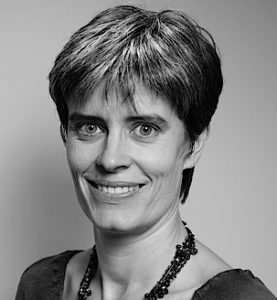 Véronique Dudouet is a Senior Research Advisor at Berghof Foundation in Berlin (Germany). Since 2005, she has managed various collaborative research projects on non-state armed groups, inclusive peace processes, negotiation and mediation, post-war political/security transitions, protest movements and nonviolent transitions of power. She conducts regular policy advice, peer-to-peer advice and training seminars for/with conflict and peacebuilding stakeholders. She also carries out consultancy research for international agencies (e.g. UNDP, UNDPO, OECD-DAC, EEAS, GIZ). She is member of the French Research Institute for Nonviolent Conflict Resolution (IRNC), and steering committee member of the Politics After War (PAW) research network. In March-October 2019, she was a Jennings Randolph Senior Fellow at the U.S. Institute of Peace in Washington DC. She has authored numerous publications (including three books) in the fields of conflict transformation and nonviolent resistance. She holds an MA and a PhD in Conflict Resolution from the University of Bradford, UK, and a BA in political science and MPhil in International Relations and Security from the Institut d’Etudes Politiques, Toulouse, France.
Véronique Dudouet is a Senior Research Advisor at Berghof Foundation in Berlin (Germany). Since 2005, she has managed various collaborative research projects on non-state armed groups, inclusive peace processes, negotiation and mediation, post-war political/security transitions, protest movements and nonviolent transitions of power. She conducts regular policy advice, peer-to-peer advice and training seminars for/with conflict and peacebuilding stakeholders. She also carries out consultancy research for international agencies (e.g. UNDP, UNDPO, OECD-DAC, EEAS, GIZ). She is member of the French Research Institute for Nonviolent Conflict Resolution (IRNC), and steering committee member of the Politics After War (PAW) research network. In March-October 2019, she was a Jennings Randolph Senior Fellow at the U.S. Institute of Peace in Washington DC. She has authored numerous publications (including three books) in the fields of conflict transformation and nonviolent resistance. She holds an MA and a PhD in Conflict Resolution from the University of Bradford, UK, and a BA in political science and MPhil in International Relations and Security from the Institut d’Etudes Politiques, Toulouse, France.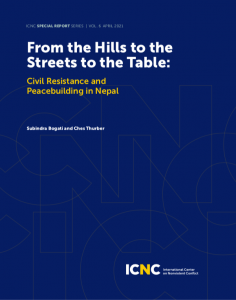
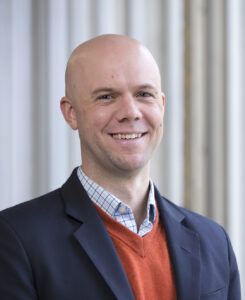 Ches Thurber is an Assistant Professor in the Department of Political Science at Northern Illinois University. His book, Between Mao and Gandhi: The Social Roots of Civil Resistance, will be published by Cambridge University Press later this year. In the book, Dr. Thurber investigates how social structures inform movements’ willingness to engage in nonviolent and violent strategies. Dr. Thurber’s previous research has been published in International Studies Quarterly, the Journal of Global Security Studies, Conflict Management and Peace Science, and other outlets. He received his PhD from The Fletcher School of Law and Diplomacy at Tufts University.
Ches Thurber is an Assistant Professor in the Department of Political Science at Northern Illinois University. His book, Between Mao and Gandhi: The Social Roots of Civil Resistance, will be published by Cambridge University Press later this year. In the book, Dr. Thurber investigates how social structures inform movements’ willingness to engage in nonviolent and violent strategies. Dr. Thurber’s previous research has been published in International Studies Quarterly, the Journal of Global Security Studies, Conflict Management and Peace Science, and other outlets. He received his PhD from The Fletcher School of Law and Diplomacy at Tufts University.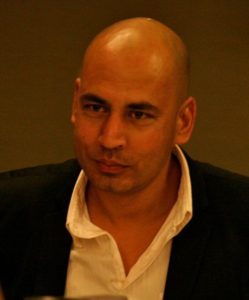 Subindra Bogati is the Founder and Chief Executive of Nepal Peacebuilding Initiative—an organization devoted to evidence-based policy and action on peacebuilding and humanitarian issues. He has been working for conflict transformation and peace process in Nepal through various national and international organizations for the last several years. Until recently, he was one of the principal investigators of the two year-long research, dialogue and policy project on “Innovations in Peacebuilding,” which was a partnership between University of Denver, Chr. Michelsen Institue (CMI) in Bergen, the Center for the Study of Violence and Reconciliation in South Africa, and the Nepal Peacebuilding Initiative, Nepal. He holds an MA in International Relations from London Metropolitan University and was awarded the FCO Chevening Fellowship in 2009 at the Centre for Studies in Security and Diplomacy, the University of Birmingham. He is a PhD candidate in the department of Political Science, Tribhuvan University, Nepal.
Subindra Bogati is the Founder and Chief Executive of Nepal Peacebuilding Initiative—an organization devoted to evidence-based policy and action on peacebuilding and humanitarian issues. He has been working for conflict transformation and peace process in Nepal through various national and international organizations for the last several years. Until recently, he was one of the principal investigators of the two year-long research, dialogue and policy project on “Innovations in Peacebuilding,” which was a partnership between University of Denver, Chr. Michelsen Institue (CMI) in Bergen, the Center for the Study of Violence and Reconciliation in South Africa, and the Nepal Peacebuilding Initiative, Nepal. He holds an MA in International Relations from London Metropolitan University and was awarded the FCO Chevening Fellowship in 2009 at the Centre for Studies in Security and Diplomacy, the University of Birmingham. He is a PhD candidate in the department of Political Science, Tribhuvan University, Nepal.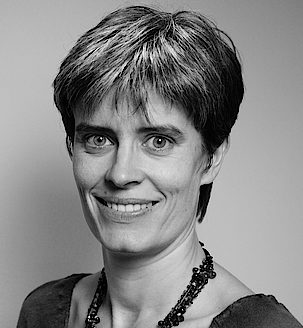 Véronique Dudouet is a Senior Research Advisor at Berghof Foundation in Berlin (Germany). Since 2005, she has managed various collaborative research projects on non-state armed groups, inclusive peace processes, negotiation and mediation, post-war political/security transitions, protest movements and nonviolent transitions of power. She conducts regular policy advice, peer-to-peer advice and training seminars for/with conflict and peacebuilding stakeholders. She also carries out consultancy research for international agencies (e.g. UNDP, UNDPO, OECD-DAC, EEAS, GIZ). She is member of the French Research Institute for Nonviolent Conflict Resolution (IRNC), and steering committee member of the Politics After War (PAW) research network. In March-October 2019, she was a Jennings Randolph Senior Fellow at the U.S. Institute of Peace in Washington DC. She has authored numerous publications (including three books) in the fields of conflict transformation and nonviolent resistance. She holds an MA and a PhD in Conflict Resolution from the University of Bradford, UK, and a BA in political science and MPhil in International Relations and Security from the Institut d’Etudes Politiques, Toulouse, France.
Véronique Dudouet is a Senior Research Advisor at Berghof Foundation in Berlin (Germany). Since 2005, she has managed various collaborative research projects on non-state armed groups, inclusive peace processes, negotiation and mediation, post-war political/security transitions, protest movements and nonviolent transitions of power. She conducts regular policy advice, peer-to-peer advice and training seminars for/with conflict and peacebuilding stakeholders. She also carries out consultancy research for international agencies (e.g. UNDP, UNDPO, OECD-DAC, EEAS, GIZ). She is member of the French Research Institute for Nonviolent Conflict Resolution (IRNC), and steering committee member of the Politics After War (PAW) research network. In March-October 2019, she was a Jennings Randolph Senior Fellow at the U.S. Institute of Peace in Washington DC. She has authored numerous publications (including three books) in the fields of conflict transformation and nonviolent resistance. She holds an MA and a PhD in Conflict Resolution from the University of Bradford, UK, and a BA in political science and MPhil in International Relations and Security from the Institut d’Etudes Politiques, Toulouse, France.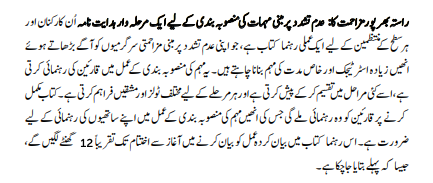
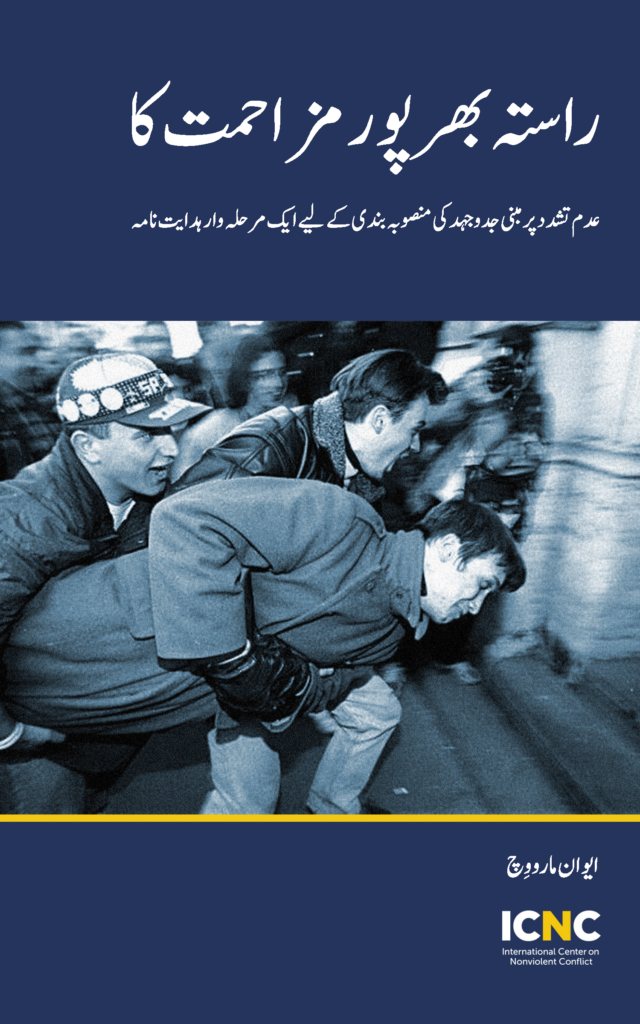
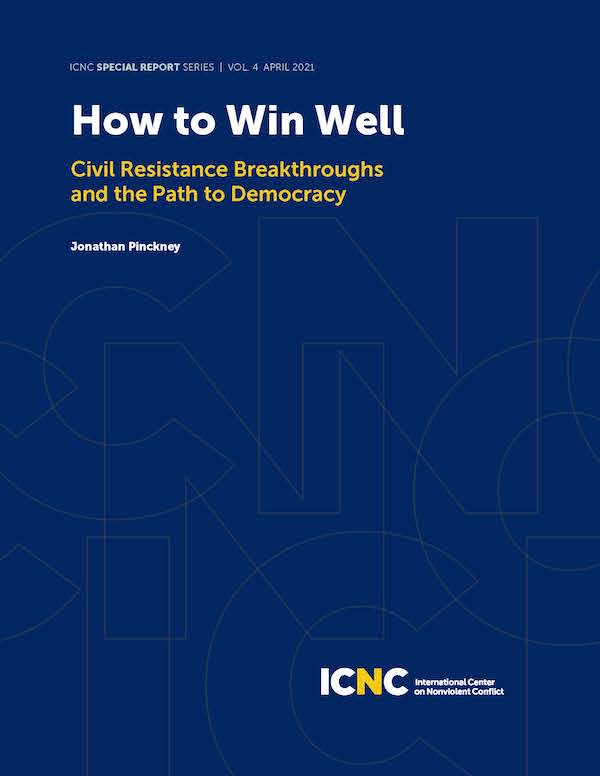
 Jonathan Pinckney is senior researcher for the Program on Nonviolent Action at the United States Institute of Peace, where he conducts applied research on nonviolent action, peacebuilding, and democratization. He is the author of From Dissent to Democracy: The Promise and Peril of Civil Resistance Transitions from Oxford University Press (2020), as well as numerous academic and general outlet articles. He received his PhD in 2018 from the University of Denver.
Jonathan Pinckney is senior researcher for the Program on Nonviolent Action at the United States Institute of Peace, where he conducts applied research on nonviolent action, peacebuilding, and democratization. He is the author of From Dissent to Democracy: The Promise and Peril of Civil Resistance Transitions from Oxford University Press (2020), as well as numerous academic and general outlet articles. He received his PhD in 2018 from the University of Denver.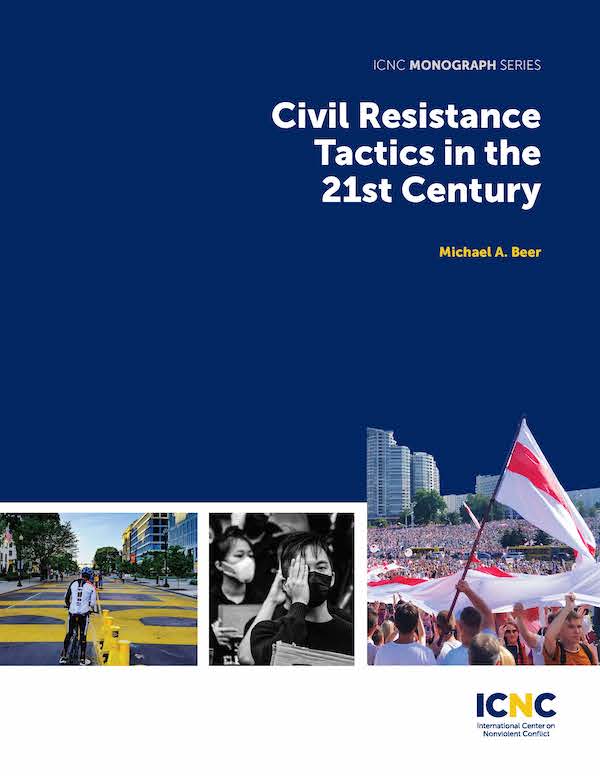
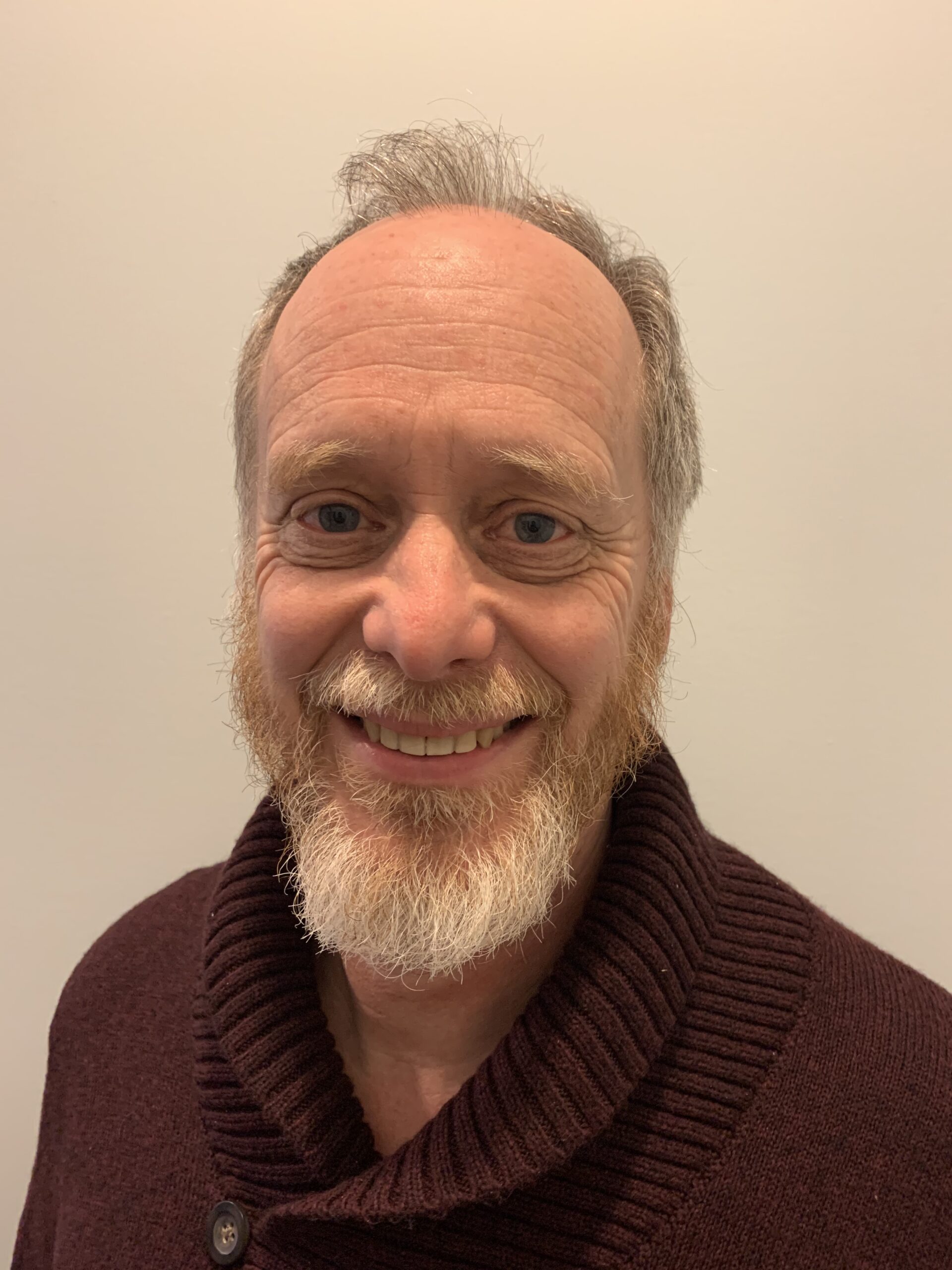 Michael Beer serves as the Director of Nonviolence International, an innovative and respected Washington DC based nonprofit promoting nonviolent approaches to international conflicts. Since 1991 he has worked with NVI to serve marginalized people who seek to use nonviolent tactics often in difficult and dangerous environments. This includes diaspora activists, multinational coalitions, global social movements, as well as within countries including: Myanmar, Tibet, Indonesia, Russia, Thailand, Palestine, Cambodia, East Timor, Iran, India, Kosovo, Zimbabwe, Sudan, and the United States. Michael Beer has a special expertise in supporting movements against dictators and in support of global organizing for justice, environment, and peace. Michael co-parents two teenagers with his patient life partner, Latanja.
Michael Beer serves as the Director of Nonviolence International, an innovative and respected Washington DC based nonprofit promoting nonviolent approaches to international conflicts. Since 1991 he has worked with NVI to serve marginalized people who seek to use nonviolent tactics often in difficult and dangerous environments. This includes diaspora activists, multinational coalitions, global social movements, as well as within countries including: Myanmar, Tibet, Indonesia, Russia, Thailand, Palestine, Cambodia, East Timor, Iran, India, Kosovo, Zimbabwe, Sudan, and the United States. Michael Beer has a special expertise in supporting movements against dictators and in support of global organizing for justice, environment, and peace. Michael co-parents two teenagers with his patient life partner, Latanja.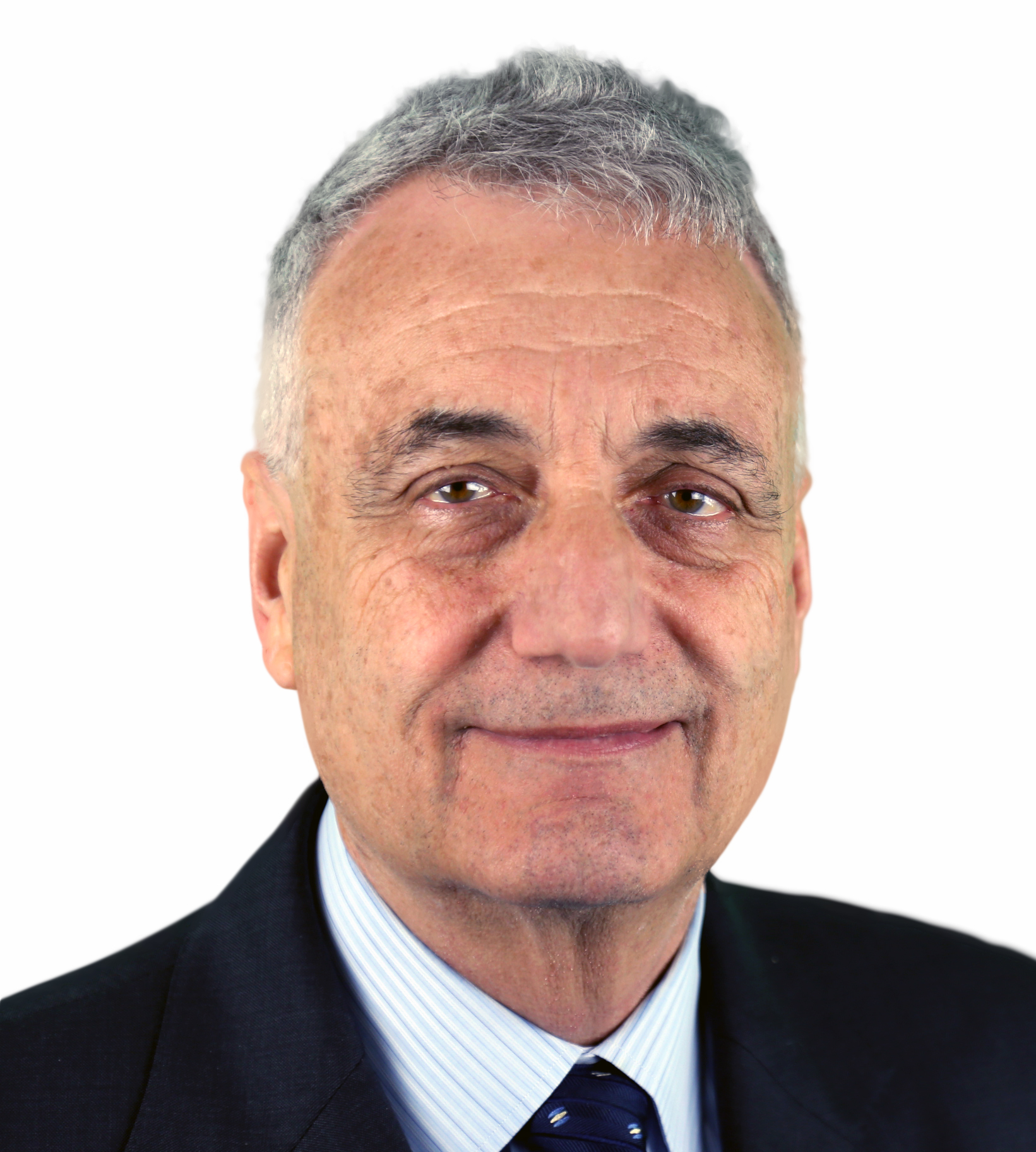 Dr. Peter Ackerman is the Founding Chair of ICNC, and one of the world’s leading authorities on nonviolent conflict. He holds a Ph.D. from The Fletcher School, Tufts University, and is also co-author of two seminal books on nonviolent resistance,
Dr. Peter Ackerman is the Founding Chair of ICNC, and one of the world’s leading authorities on nonviolent conflict. He holds a Ph.D. from The Fletcher School, Tufts University, and is also co-author of two seminal books on nonviolent resistance,  Shaazka Beyerle is Senior Fellow at the
Shaazka Beyerle is Senior Fellow at the 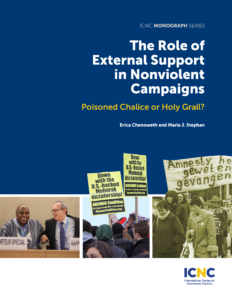

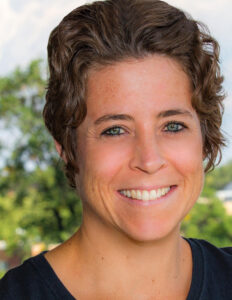 Maria J. Stephan’s career has bridged the academic, policy, and non-profit sectors, with a focus on the role of civil resistance and nonviolent movements in advancing human rights, democratic freedoms, and sustainable peace in the US and globally. She most recently directed the Program on Nonviolent Action at the U.S. Institute of Peace, overseeing cutting-edge research and programming focused on the nexus of nonviolent action and peacebuilding. Stephan is the co-author (with Erica Chenoweth) of Why Civil Resistance Works: The Strategic Logic of Nonviolent Conflict, which was awarded the 2012 Woodrow Wilson Foundation Prize by the American Political Science Association for the best book published in political science, and the 2013 Grawemeyer Award for Ideas Improving World Order. She is the co-author of Bolstering Democracy: Lessons Learned and the Path Forward (Atlantic Council, 2018); the co-editor of Is Authoritarianism Staging a Comeback? (Atlantic Council, 2015); and the editor of Civilian Jihad: Nonviolent Struggle, Democratization and Governance in the Middle East (Palgrave, 2009). From 2009-14, Stephan was lead foreign affairs officer in the U.S. State Department’s Bureau of Conflict and Stabilization Operations, receiving two Meritorious Service Awards for her work in Afghanistan and Turkey. She later co-directed the Future of Authoritarianism initiative at the Atlantic Council. Stephan has taught at Georgetown University and American University. She received her BA in political science from Boston College and her MA and PhD from the Fletcher School of Law and Diplomacy. Stephan, a native Vermonter, is a lifetime member of the Council on Foreign Relations.
Maria J. Stephan’s career has bridged the academic, policy, and non-profit sectors, with a focus on the role of civil resistance and nonviolent movements in advancing human rights, democratic freedoms, and sustainable peace in the US and globally. She most recently directed the Program on Nonviolent Action at the U.S. Institute of Peace, overseeing cutting-edge research and programming focused on the nexus of nonviolent action and peacebuilding. Stephan is the co-author (with Erica Chenoweth) of Why Civil Resistance Works: The Strategic Logic of Nonviolent Conflict, which was awarded the 2012 Woodrow Wilson Foundation Prize by the American Political Science Association for the best book published in political science, and the 2013 Grawemeyer Award for Ideas Improving World Order. She is the co-author of Bolstering Democracy: Lessons Learned and the Path Forward (Atlantic Council, 2018); the co-editor of Is Authoritarianism Staging a Comeback? (Atlantic Council, 2015); and the editor of Civilian Jihad: Nonviolent Struggle, Democratization and Governance in the Middle East (Palgrave, 2009). From 2009-14, Stephan was lead foreign affairs officer in the U.S. State Department’s Bureau of Conflict and Stabilization Operations, receiving two Meritorious Service Awards for her work in Afghanistan and Turkey. She later co-directed the Future of Authoritarianism initiative at the Atlantic Council. Stephan has taught at Georgetown University and American University. She received her BA in political science from Boston College and her MA and PhD from the Fletcher School of Law and Diplomacy. Stephan, a native Vermonter, is a lifetime member of the Council on Foreign Relations.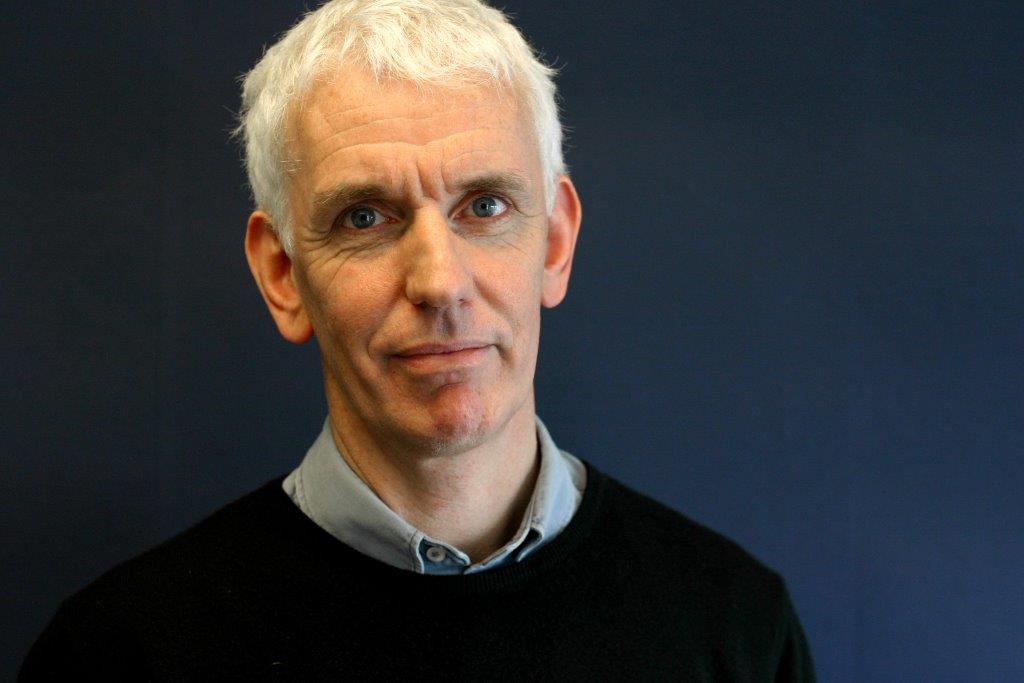 Steve Crawshaw is the author of Street Spirit: The Power of Protest and Mischief, foreword by Ai Weiwei, which has been translated into Arabic, Chinese and other languages.
Steve Crawshaw is the author of Street Spirit: The Power of Protest and Mischief, foreword by Ai Weiwei, which has been translated into Arabic, Chinese and other languages.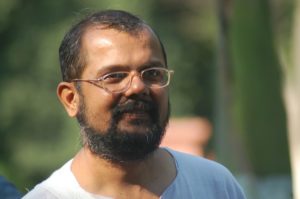 Ramesh Sharma is Ekta Parishad’s National Coordinator. He and his team have continued in the Gandhian tradition of constructive resistance by building alternative institutions to increase self-reliance, while also engaging in rallies, marches, and other mobilization to achieve reforms, protect rights, and demand access to needed resources for villagers across India.
Ramesh Sharma is Ekta Parishad’s National Coordinator. He and his team have continued in the Gandhian tradition of constructive resistance by building alternative institutions to increase self-reliance, while also engaging in rallies, marches, and other mobilization to achieve reforms, protect rights, and demand access to needed resources for villagers across India.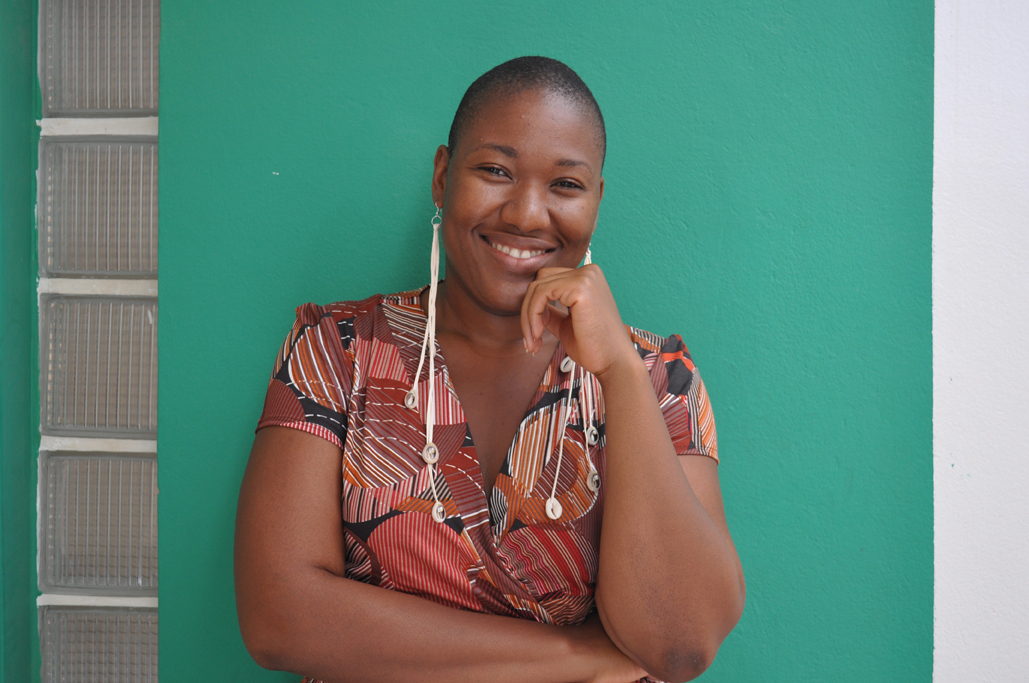 Valerie Traore is the Founder and Executive Director of Niyel. Valerie has over fifteen years of professional experience in campaigning and advocacy on a wide range of issues including human rights and rights based programming, development, human security and conflict, politics and international relations. In that capacity Valerie has led the development and implementation of advocacy and mobilization strategy for over 20 international organizations.
Valerie Traore is the Founder and Executive Director of Niyel. Valerie has over fifteen years of professional experience in campaigning and advocacy on a wide range of issues including human rights and rights based programming, development, human security and conflict, politics and international relations. In that capacity Valerie has led the development and implementation of advocacy and mobilization strategy for over 20 international organizations.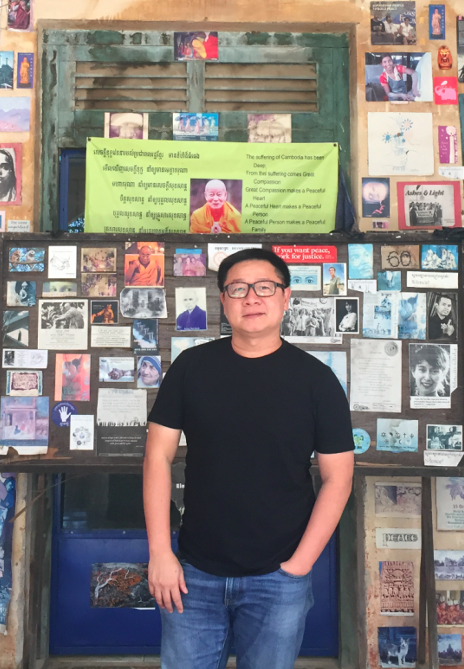
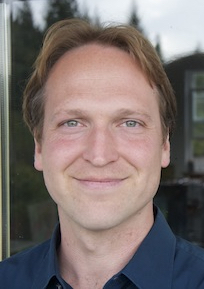 Hardy Merriman is President and CEO of the International Center on Nonviolent Conflict (ICNC). He has worked in the field of civil resistance for over 18 years, presenting at workshops for activists and organizers around the world; speaking widely about civil resistance movements with academics, journalists, and members of international organizations; and developing resources for practitioners and scholars. His writings have been translated into numerous languages. Most recently, Mr. Merriman co-authored the ICNC Special Report
Hardy Merriman is President and CEO of the International Center on Nonviolent Conflict (ICNC). He has worked in the field of civil resistance for over 18 years, presenting at workshops for activists and organizers around the world; speaking widely about civil resistance movements with academics, journalists, and members of international organizations; and developing resources for practitioners and scholars. His writings have been translated into numerous languages. Most recently, Mr. Merriman co-authored the ICNC Special Report 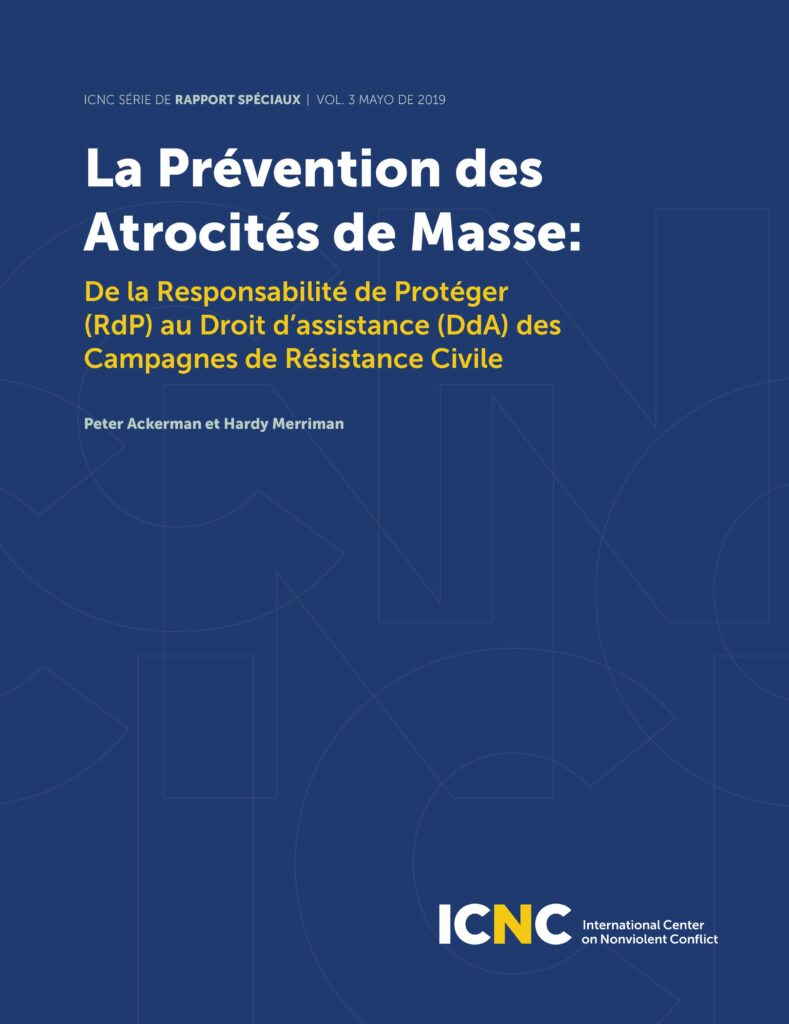
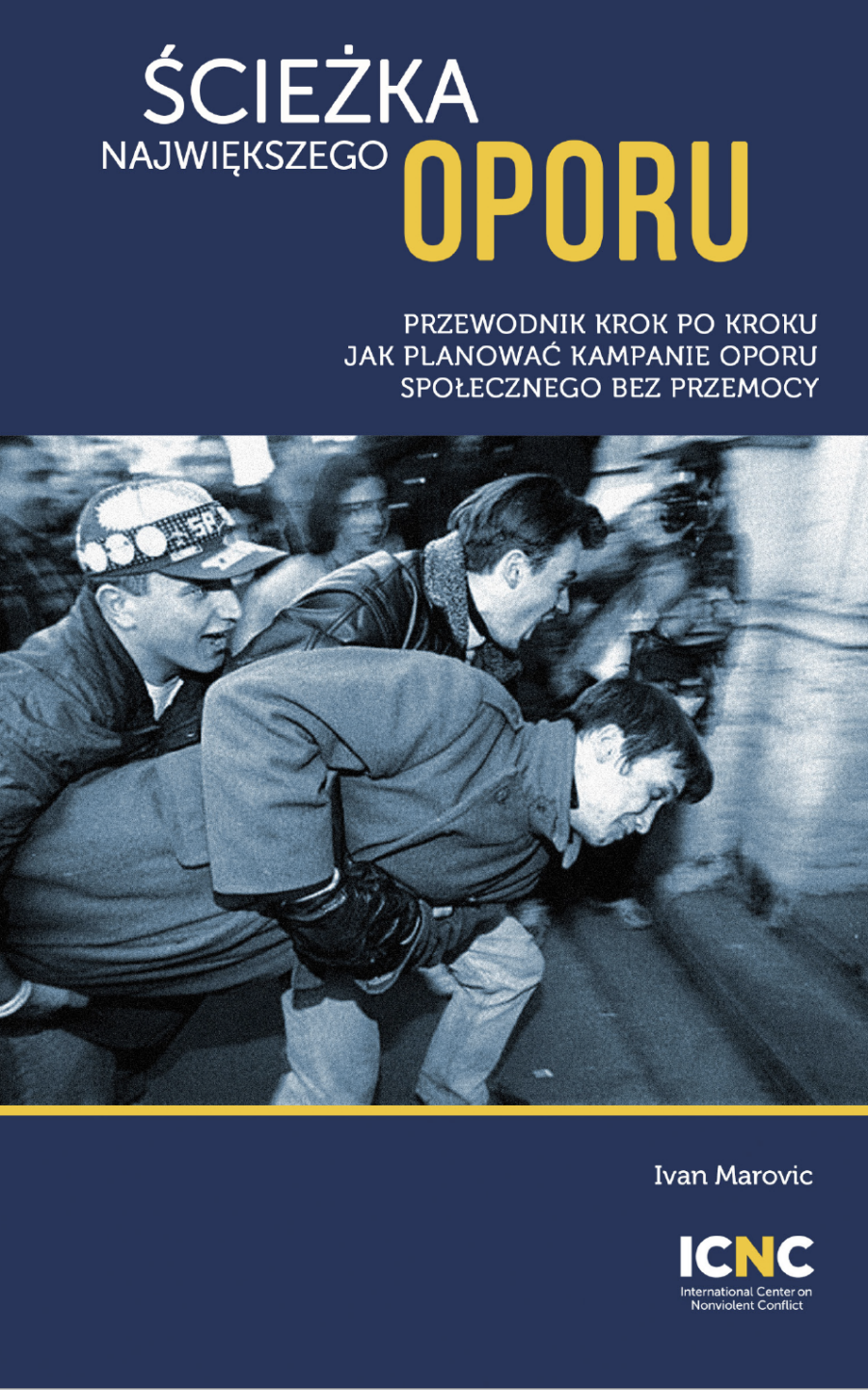



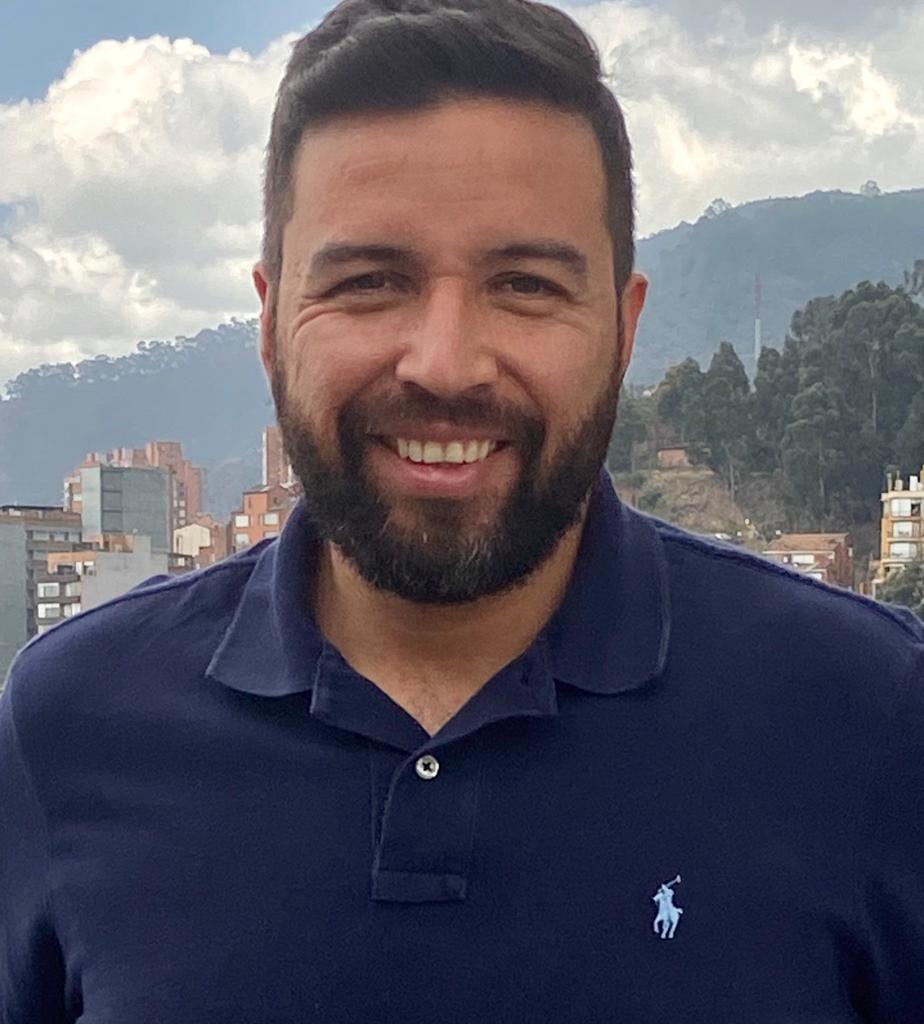
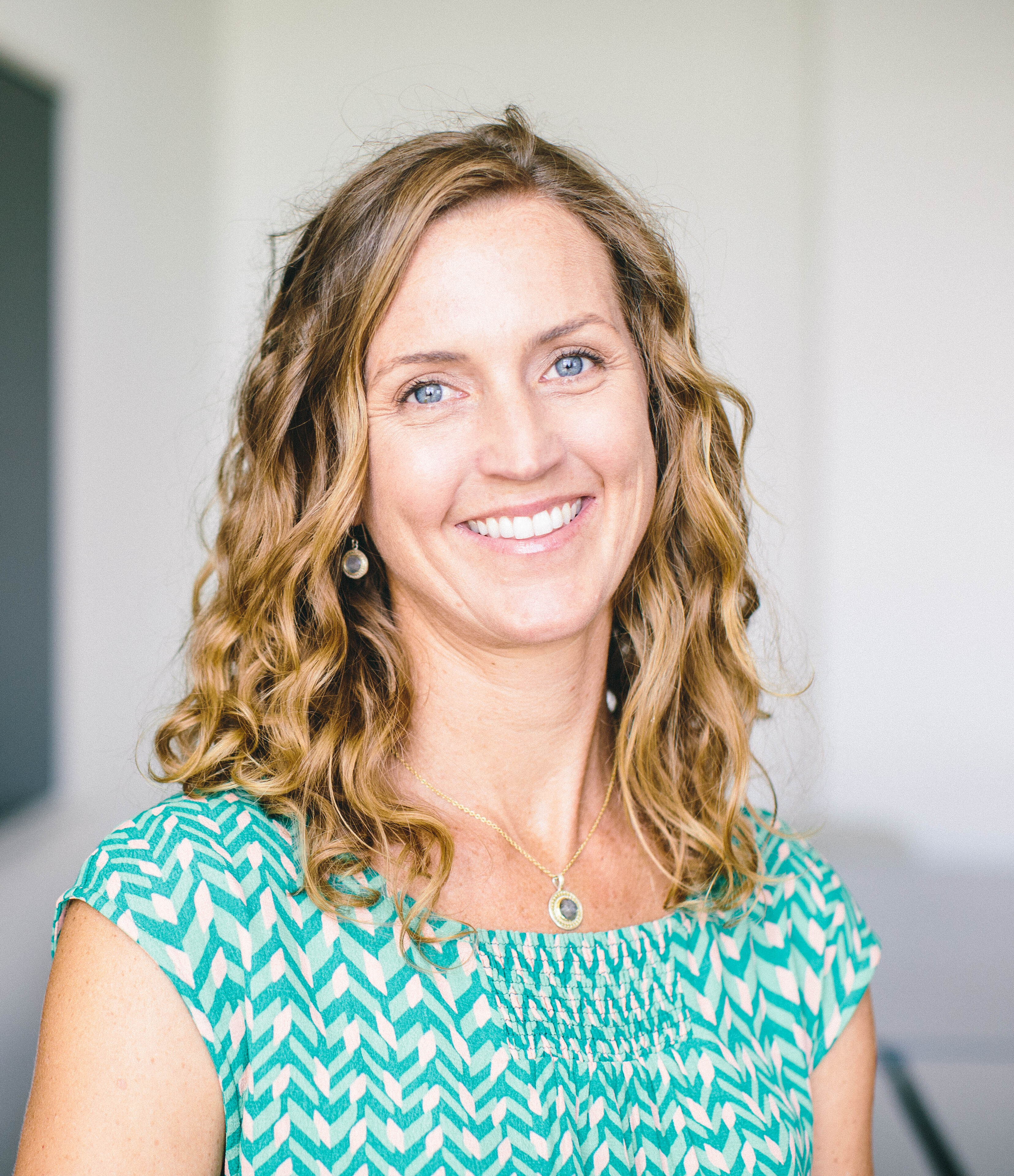
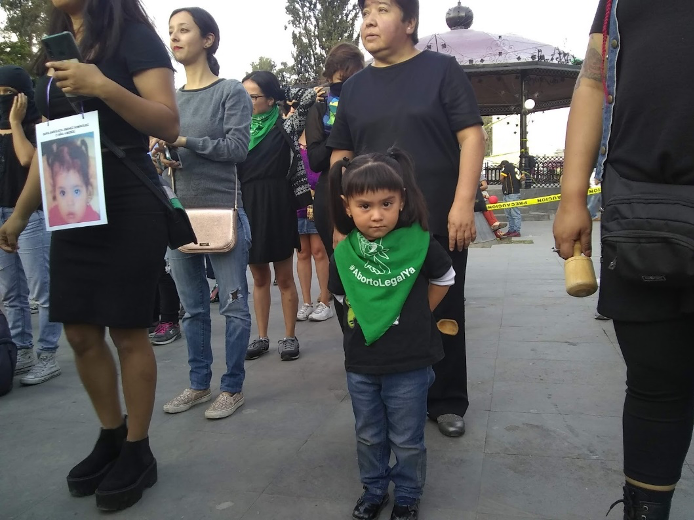
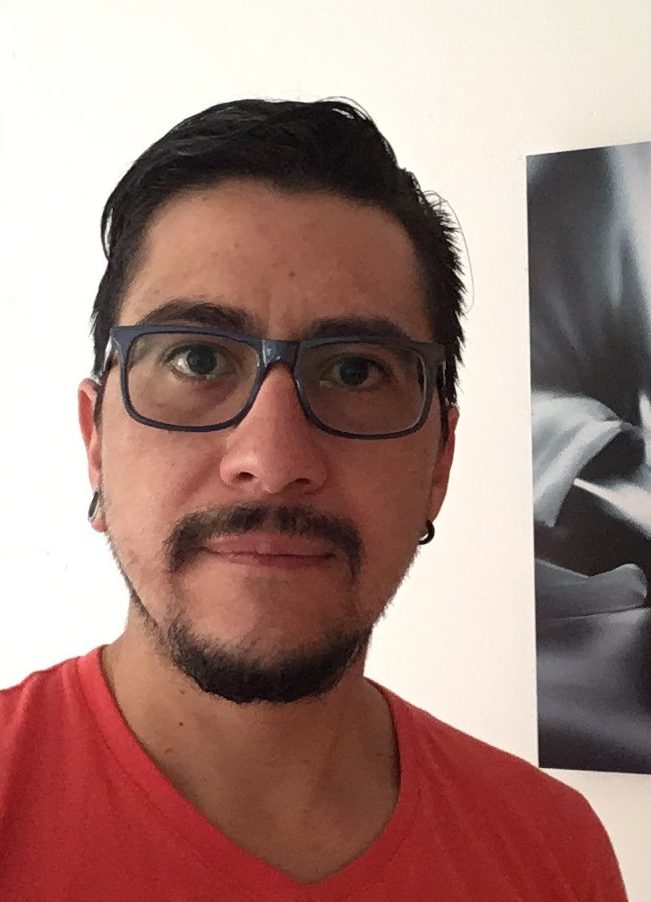 Alfonso Poncho Hernández is a Mexico City–based activist, community organizer, philosopher, and anthropologist with more than 10 years of work in nonviolence and peacebuilding. An experienced trainer and conferencist, he has delivered workshops, seminars, and conferences in several universities in Mexico, and countries like India, Brazil, Colombia, Ecuador, Honduras, and the USA. His academic work is focused on the use of arts in social responses to violence, including civil resistance and creative social movements in Latin America. He is specifically interested in peacebuilding through cultural practices in communities with high levels of violence in Mexico.
Alfonso Poncho Hernández is a Mexico City–based activist, community organizer, philosopher, and anthropologist with more than 10 years of work in nonviolence and peacebuilding. An experienced trainer and conferencist, he has delivered workshops, seminars, and conferences in several universities in Mexico, and countries like India, Brazil, Colombia, Ecuador, Honduras, and the USA. His academic work is focused on the use of arts in social responses to violence, including civil resistance and creative social movements in Latin America. He is specifically interested in peacebuilding through cultural practices in communities with high levels of violence in Mexico. Ingabire Merab is a trained journalist and the Head of Media and Communication at Solidarity Uganda, a progressive organization of activists and political education trainers based in Uganda. The organization focuses on training, coaching, and capacity-building for activists and organizers to boost their social and political effectiveness using civil resistance and nonviolence as a methodology.
Ingabire Merab is a trained journalist and the Head of Media and Communication at Solidarity Uganda, a progressive organization of activists and political education trainers based in Uganda. The organization focuses on training, coaching, and capacity-building for activists and organizers to boost their social and political effectiveness using civil resistance and nonviolence as a methodology. Luke Espiritu is the national president of the Solidarity of Filipino Workers (Bukluran ng Manggagawang Pilipino or BMP), a socialist labor center, and the Solidarity of Unions in the Philippines for Empowerment and Reforms (SUPER), a trade union federation.
Luke Espiritu is the national president of the Solidarity of Filipino Workers (Bukluran ng Manggagawang Pilipino or BMP), a socialist labor center, and the Solidarity of Unions in the Philippines for Empowerment and Reforms (SUPER), a trade union federation.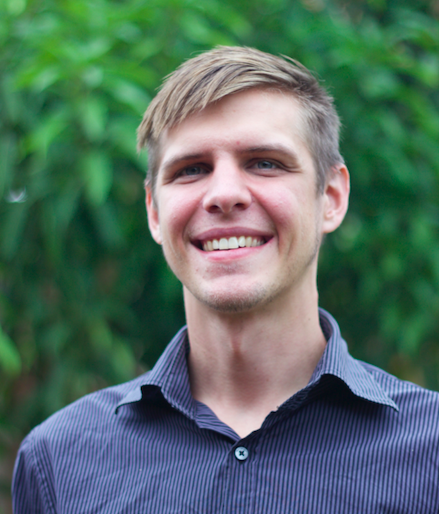 Phil Wilmot is a community organizer and founder of Solidarity Uganda, based in Kisubi, Uganda. He is a regular contributor to the ICNC blog and is a correspondent for Waging Nonviolence, writing extensively on civil resistance and movements in Africa. Phil is also an editorial member with activist extraordinaires Beautiful Trouble.
Phil Wilmot is a community organizer and founder of Solidarity Uganda, based in Kisubi, Uganda. He is a regular contributor to the ICNC blog and is a correspondent for Waging Nonviolence, writing extensively on civil resistance and movements in Africa. Phil is also an editorial member with activist extraordinaires Beautiful Trouble.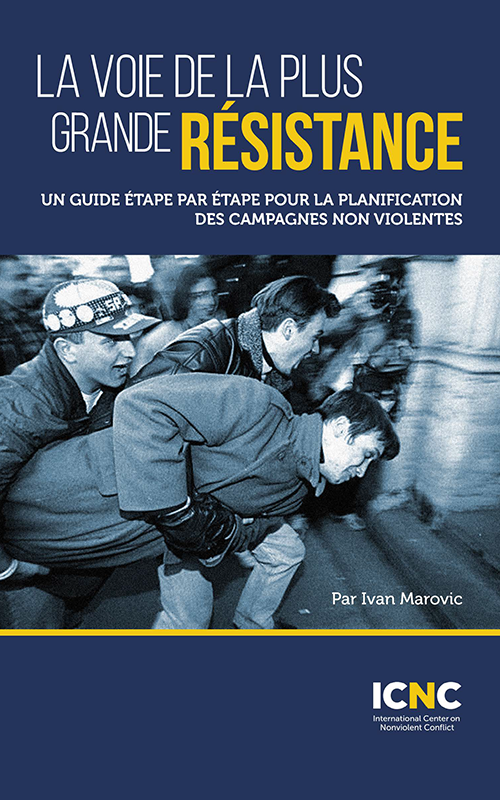
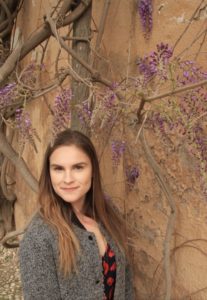
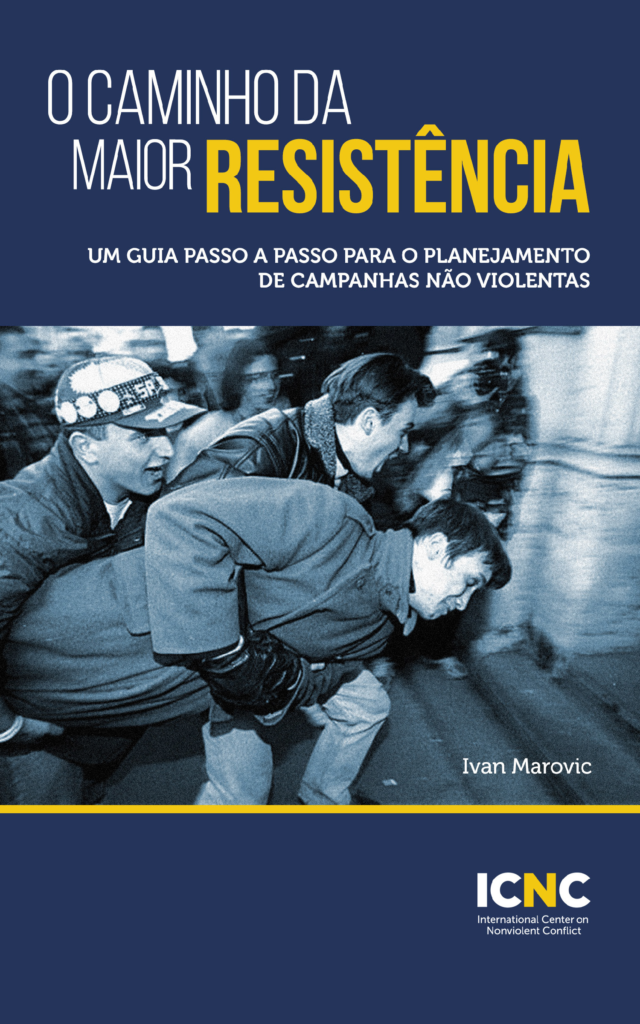 Compre uma Cópia
Compre uma Cópia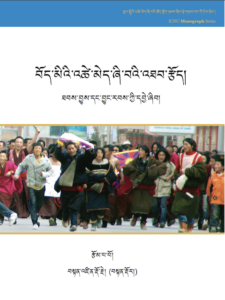
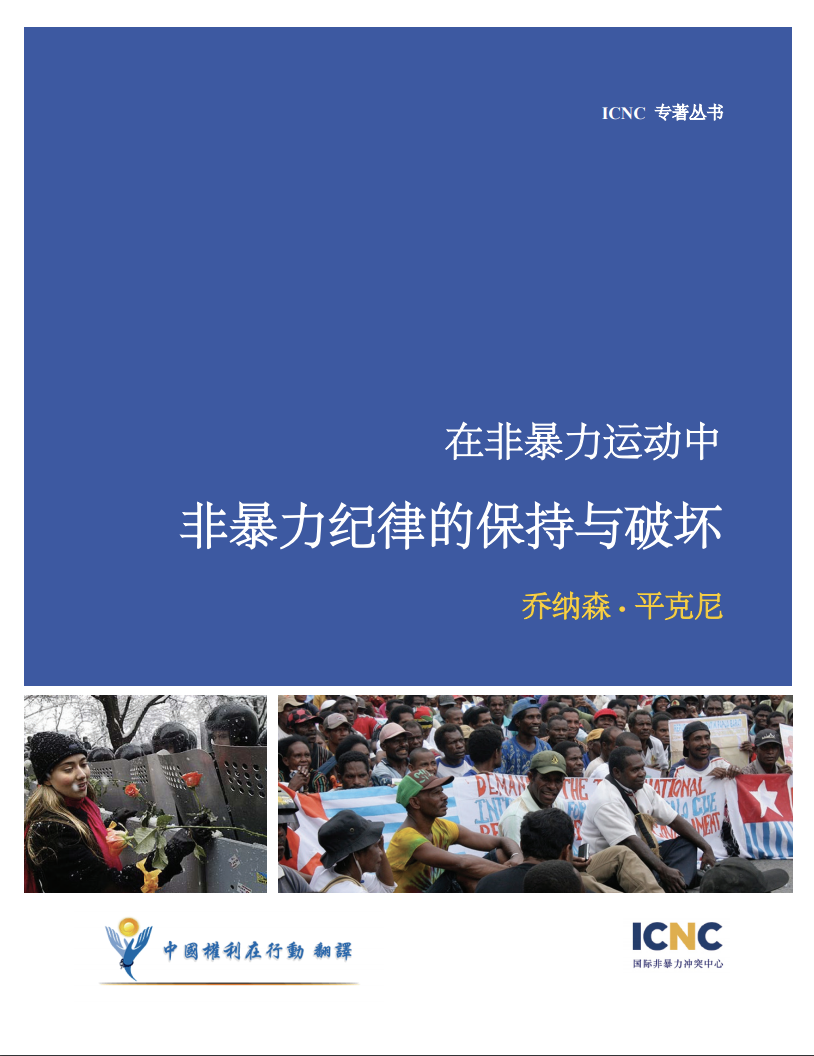
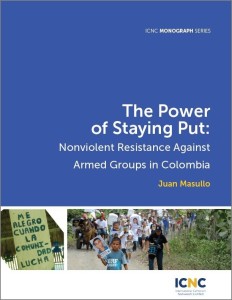 Cuando los grupos armados llegan a sus territorios, la población civil por lo general colabora con el grupo armado más fuerte o se desplaza. Sin embargo, los civiles no están obligados a elegir entre estas dos opciones. Desafi ar a los grupos armados a través de auto-organización en formas noviolentas de no-cooperación es también una posibilidad. Esta monografía explora esta opción en el contexto del confl icto armado interno colombiano a través de la experiencia de resistencia civil de los campesinos de la Comunidad de San José de Apartadó.
Cuando los grupos armados llegan a sus territorios, la población civil por lo general colabora con el grupo armado más fuerte o se desplaza. Sin embargo, los civiles no están obligados a elegir entre estas dos opciones. Desafi ar a los grupos armados a través de auto-organización en formas noviolentas de no-cooperación es también una posibilidad. Esta monografía explora esta opción en el contexto del confl icto armado interno colombiano a través de la experiencia de resistencia civil de los campesinos de la Comunidad de San José de Apartadó.